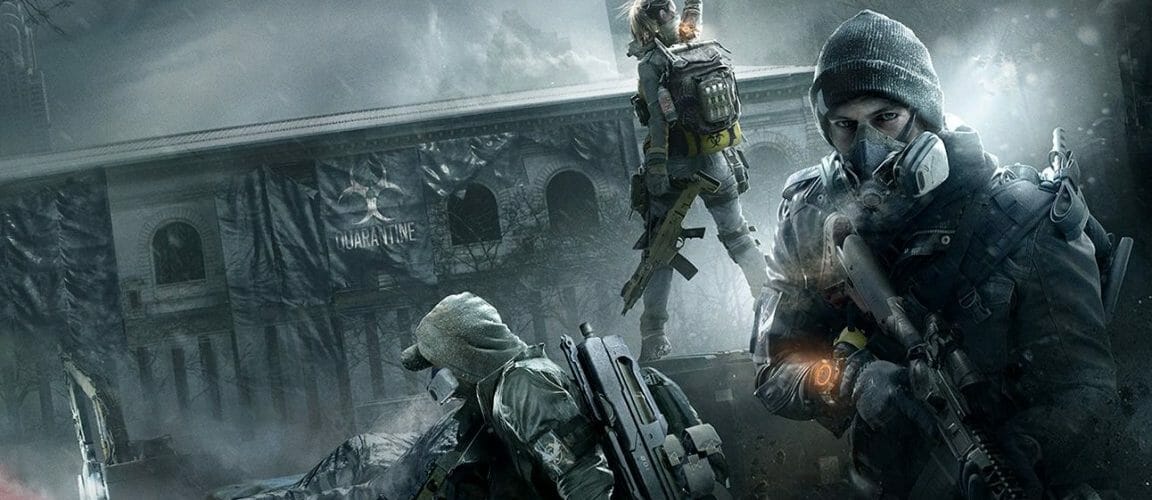With the snowstorm rolling in with high winds, the northeast could be seeing a lot of snow. The mainstream media, of course, has had its history of embellishing the weather too. Are they embellishing this one as well? Post in the comments below. Here in northern Indiana, I got a small dusting in the morning that soon melted hours later.
But what I am wondering about is, is this the start of a potential “dark winter.” The average Joe, when they hear the term “dark winter,” assume it just means an extra snowy and cold winter season. However, that is not the case. “Dark winter” is a military term referring to what is known as Operation Dark Winter.
What Is A Dark Winter?
The following is from John Hopkins Bloomberg School of Public Health:
On June 22-23, 2001, the Center for Strategic and International Studies, the Johns Hopkins Center for Civilian Biodefense Studies, the ANSER Institute for Homeland Security, and the Oklahoma City National Memorial Institute for the Prevention Terrorism, hosted a senior-level war game examining the national security, intergovernmental, and information challenges of a biological attack on the American homeland. (See also: Dark Winter Script • Article: Shining Light on Dark Winter)
With tensions rising in the Taiwan Straits, and a major crisis developing in Southwest Asia, a smallpox outbreak was confirmed by the CDC in Oklahoma City. During the thirteen days of the game, the disease spread to 25 states and 15 other countries. Fourteen participants and 60 observers witnessed terrorism/warfare in slow motion. Discussions, debates (some rather heated), and decisions focused on the public health response, lack of an adequate supply of smallpox vaccine, roles and missions of federal and state governments, civil liberties associated with quarantine and isolation, the role of DoD, and potential military responses to the anonymous attack. Additionally, a predictable 24/7 news cycle quickly developed that focused the nation and the world on the attack and response. Five representatives from the national press corps (including print and broadcast) participated in the game and conducted a lengthy press conference with the President. See briefing slides.
Key Players
- President: The Hon. Sam Nunn
- National Security Advisor: The Hon. David Gergen
- Director of Central Intelligence: The Hon. R. James Woolsey
- Secretary of Defense: The Hon. John White
- Chairman, Joint Chiefs of Staff: General John Tilelli (USA, Ret.)
- Secretary of Health & Human Services: The Hon. Margaret Hamburg
- Secretary of State: The Hon. Frank Wisner
- Attorney General: The Hon. George Terwilliger
- Director, Federal Emergency Management Agency: Mr. Jerome Hauer
- Director, Federal Bureau of Investigation: The Hon. William Sessions
- Governor of Oklahoma: The Hon. Frank Keating
- Press Secretary of Gov. Frank Keating (OK): Mr. Dan Mahoney
- Correspondent, NBC News: Mr. Jim Miklaszewski
- Pentagon Producer, CBS News: Ms. Mary Walsh
- Reporter, British Broadcasting Corporation: Ms. Sian Edwards
- Reporter, The New York Times: Ms. Judith Miller
- Reporter, Freelance: Mr. Lester Reingold
The players were introduced to this crisis during a National Security Council meeting scheduled to address several emerging crises, including the deployment of a carrier task force to the Middle East. At the start of the meeting, the Director of Health and Human Services informed the President of a confirmed case of smallpox in Oklahoma City. Additional smallpox cases were soon identified in Georgia and Pennsylvania. More cases were reported in Oklahoma. The source of the infection was unknown, and exposure was presumed to have taken place at least nine days earlier due to the lengthy incubation period of smallpox. Consequently, exposed individuals had likely traveled far from the loci of what was now presumed to be a biological attack. The scenario spanned 13 days.
Findings
- An attack on the United States with biological weapons could threaten vital national security interests. Massive civilian casualties, breakdown in essential institutions, violation of democratic processes, civil disorder, loss of confidence in government and reduced U.S. strategic flexibility abroad are among the ways a biological attack might compromise U.S. security.
- Current organizational structures and capabilities are not well suited for the management of a BW attack. Major “fault lines” exist between different levels of government (federal, state, and local), between government and the private sector, among different institutions and agencies, and within the public and private sector. These “disconnects” could impede situational awareness and compromise the ability to limit loss of life, suffering, and economic damage.
- There is no surge capability in the U.S. healthcare and public health systems, or in the pharmaceutical and vaccine industries. This institutionally limited surge capacity could result in hospitals being overwhelmed and becoming inoperable, and it could impede public health agencies’ analysis of the scope, source and progress of the epidemic, their ability to educate and reassure the public, and their capacity to limit causalities and the spread of disease.
- Dealing with the media will be a major immediate challenge for all levels of government. Information management and communication (e.g., dealing with the press effectively, communication with citizens, maintaining the information flows necessary for command and control at all institutional levels) will be a critical element in crisis/consequence management.
- Should a contagious bioweapon pathogen be used, containing the spread of disease will present significant ethical, political, cultural, operational, and legal challenges.
Smallpox, because of its high case-fatality rates and transmissibility, represents one of the most serious biological warfare threats to the civilian population. In 1980, the World Health Assembly announced that smallpox had been eradicated and recommended that all countries cease vaccination. Although labs in two countries still officially store smallpox samples (U.S. and Russia), its re-appearance would almost certainly indicate an intentional outbreak.
Aerosol release of smallpox virus disseminated among a relatively small population could result in a significant epidemic. Evidence suggests the infectious dose is very small. Several factors are cause for concern: the disease has historically been feared as one of the most serious of all pestilential diseases; it is physically disfiguring; it bears a 30 percent case-fatality rate; there is no treatment; it is communicable from person to person. Vaccination ceased in this country in 1972, and vaccination immunity acquired before that time has undoubtedly waned. Prior to eradication, data on smallpox outbreaks in Europe indicated that victims had the potential to infect 10 to 20 others. However, there has never been a smallpox outbreak in such a densely populated, highly mobile, unvaccinated population such as exists today.
In 1947, in response to a single case of smallpox in New York City, 6,350,000 people were immunized (500,000 in one day), including President Harry Truman. In 1972, after disappearing from Yugoslavia for four decades, a single case of smallpox emerged. There are two ways to control a smallpox epidemic – vaccine and isolation. Yugoslavia’s Communist leader, Josip Tito, used both. He instituted a nation-wide quarantine, and immunized the entire country of 20 million people using vaccine supplied by the World Health Organization.
Estimates of the current U.S. supply of smallpox vaccine range from 7 to 12 million doses. This stock cannot be immediately replenished, since all vaccine production facilities were dismantled after 1980, and renewed vaccine production is estimated to require at least 24-36 months. The Centers for Disease Control and Prevention recently contracted with Acambis Inc. of Cambridge MA to produce 40 million doses of new vaccine.
Significance
During the second and final presidential debate, the term “dark winter” was used. When discussing the covid plandemic, the two Pinocchios on stage were arguing who could better handle covid. Joe Biden said America is heading into a dark winter, and that President Trump has no plan, and no way of guaranteeing a vaccine for everyone by spring of next year. Trump then nonchalantly denied that there would be a dark winter, and how Joe Biden did a poor job handling the H1N1 outbreak.
Here is the clip below:
With the potential that millions could face eviction very soon if good-for-nothing congress cannot get something going, things could get really hairy very quickly. If that happens, especially with the blizzards underway, and more to come in the future for sure, this has the potential of shaping up to be a dark winter.
If you want to see what a dark winter would look like, please watch the two next clips. Both of these clips are trailers for a video game called Tom Clancy’s The Division. The game was published by developer Ubisoft in 2016. The video game is explicitly about a dark winter that actually occurs.
It is set in a near future New York City in the aftermath of a viral pandemic; the player, a Special Agent of the Strategic Homeland Division, is tasked with helping the group rebuild its operations in Manhattan, investigate the nature of the outbreak, and combat criminal activity in its wake.
Wikipedia description
Now can I dogmatically say there will be one? No, I cannot. But I am bringing this up because it is vitally important to be prepared. If you have not been preparing since the start of this fiasco, then I honestly do not know what to say, to be brutally honest. I am unprepared myself, regretfully.
[5] Let your conversation be without covetousness; and be content with such things as ye have: for he hath said, I will never leave thee, nor forsake thee. [6] So that we may boldly say, The Lord is my helper, and I will not fear what man shall do unto me.Hebrews 13:5-6
Be merciful unto me, O God, be merciful unto me: for my soul trusteth in thee: yea, in the shadow of thy wings will I make my refuge, until these calamities be overpast.
Psalm 57:1
We all need to pray fervently that the Lord protect and provide for us all. Whether or not an actual dark winter will happen, we need to be prepared, and to lean upon Jesus Christ more than ever before.
The WinePress needs your support! If God has laid it on your heart to want to contribute, please prayerfully consider donating to this ministry. If you cannot gift a monetary donation, then please donate your fervent prayers to keep this ministry going! Thank you and may God bless you.







